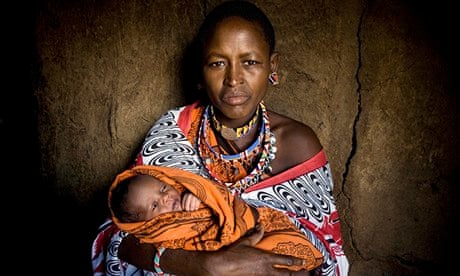Pope Francis has hit out at the "excessive centralisation" of the Catholic church and railed against what he described as a murderous "economy of exclusion and inequality" in a wide-ranging document likened by one Vatican observer to a "Magna Carta for church reform".
Criticising everything from defeatist Christian "sourpusses" to believers with "an ostentatious preoccupation" for doctrine and the church's prestige, the Argentinian pontiff presented a sweeping vision of the change he wants to introduce.
In an 84-page apostolic exhortation, his most important written intervention to date, Francis explored the issues he has made the pillars of his papacy, such as the need for ethical reform of the global financial system and a more pastoral church that gets "bruised, hurting and dirty because it has been out on the streets".
Chastising an economic system which "tends to devour everything which stands in the way of increased profits", he wrote: "Just as the commandment 'Thou shalt not kill' sets a clear limit in order to safeguard the value of human life, today we also have to say 'thou shalt not' to an economy of exclusion and inequality. Such an economy kills. How can it be that it is not a news item when an elderly homeless person dies of exposure, but it is news when the stock market loses two points?"
He added that he prayed for secular leadership with a social conscience. "I beg the Lord to grant us more politicians who are genuinely disturbed by the state of society, the people, the lives of the poor."
In Evangelii Gaudium (The Joy of the Gospel), Francis reiterated his desire to see a church that ministered more to its flock of 1.2 billion and went out to the margins of society to help people and spread Christianity. In comments that supported his desire to reform church governance, to make it more "horizontal", Francis said the pontiff should allow more room to bishops working in different areas.
"It is not advisable for the pope to take the place of local bishops in the discernment of every issue which arises in their territory," he said. "In this sense, I am conscious of the need to promote a sound 'decentralisation'." He added: "Excessive centralisation, rather than proving helpful, complicates the church's life and her missionary outreach."
The exhortation, written in his unfussy style, is the first lengthy document Francis has written on his own as pope. An encyclical entitled Lumen Fidei (The Light of Faith) and issued in July was written mostly by Benedict XVI before his resignation in February.
The document did not bring good news to supporters of women's ordination. While he praised women's "distinctive skill sets", the pope said the uniquely male sphere of the priesthood was "not a question open to discussion".
He said the Catholic leadership needed to make "a more incisive female presence in the church" possible, but gave no indication of what that might look like.

Comments (…)
Sign in or create your Guardian account to join the discussion